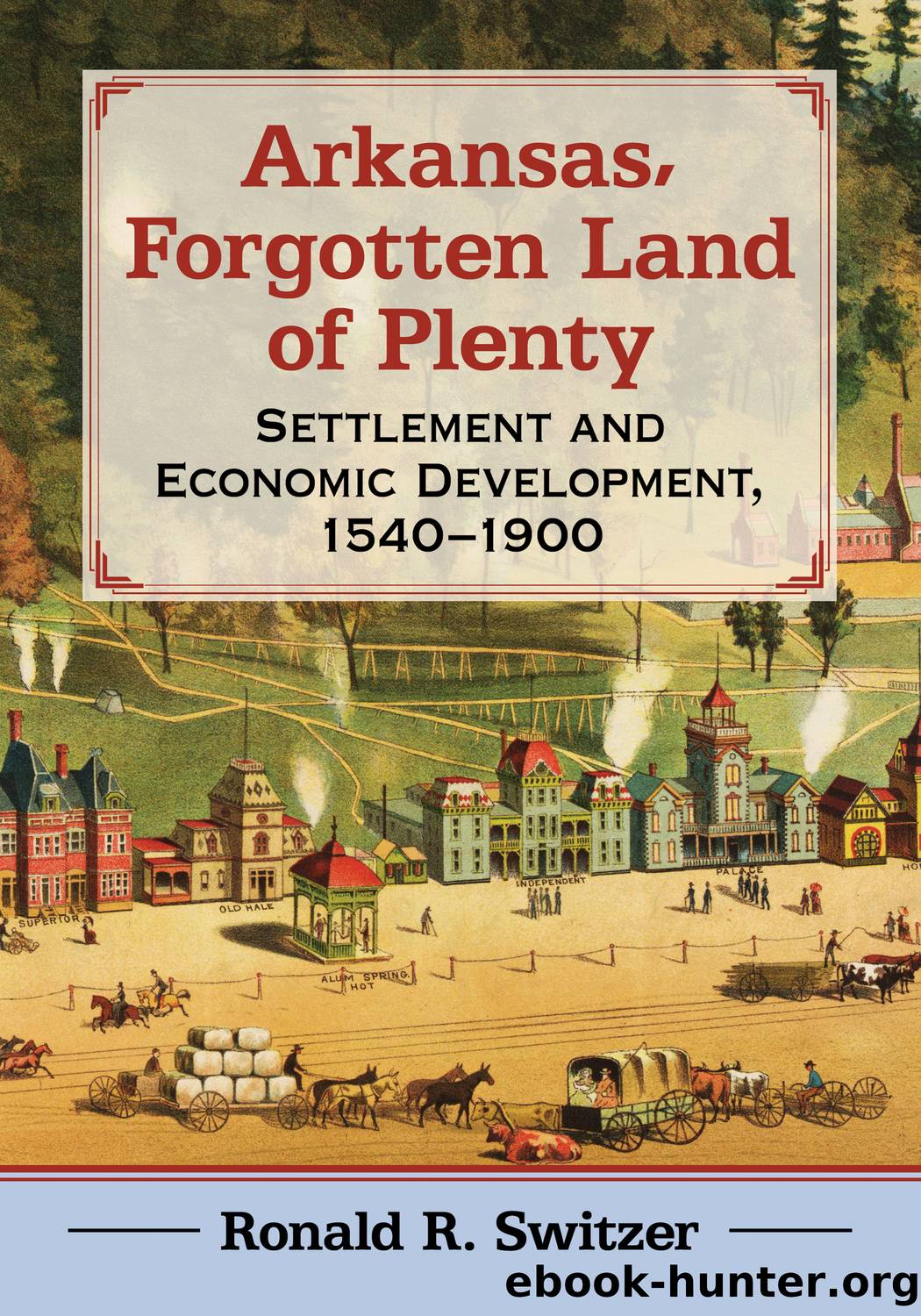Arkansas, Forgotten Land of Plenty by Ronald R. Switzer

Author:Ronald R. Switzer
Language: eng
Format: epub
Publisher: McFarland & Company, Inc., Publishers
Published: 2019-10-22T00:00:00+00:00
The Confederate Commissary Department found the same shortages of fresh beef and flour in the south, but it could supply some of the Army needs by contract. George W. White was under contract to provide â1,000,000 pounds of bacon, or a sufficiency for Fort Smith and Fayetteville, Arkansas,â at 15 cents a pound. He also was to provide âall required [beef-on-the-hoof] by the troops in West Arkansas, the Cherokee, Creek, and Choctaw Nations, and as far north as Springfield, Mo., at 6½ cents net per pound.â37
Although White was a Texas supplier to the Confederacy, the name should be researched further because he apparently was involved in fraud against the United States government that had further ramifications in the legalities of Texas statehood. In 1851 Congress and the Supreme Court were considering the question of whether to admit Texas to the Union as a state and where its northern boundary should be. In that year Congress gave Texas 5,000 U.S. bonds with a face value of $1,000 each, redeemable in gold in 1865. During the last few months of the Civil War the Texas Military Board turned over some of the bonds to George W. White and John Chiles in exchange for promised delivery of supplies needed for the Confederacy. The Confederate army was desperate, and the agreement called for White and Chiles, if they could not deliver the supplies, not to return the U.S. gold bonds, but an equivalent amount in worthless state bonds. White and Chiles did not deliver the supplies, and at the end of the war they produced the totally worthless Confederate bonds to fulfill their contract obligation. The provisional Union governor refused to accept the paper bonds and declared the agreement a swindle. In 1867 Texas filed suit in the U.S. Supreme Court alleging that Article III of the constitution allowed a state to invoke the Courtâs original jurisdiction and asking for an order that White and Chiles return the U.S. (gold) bonds. Two years later, in 1869, in the case of Texas v. White, the court ruled that because Texas was not a state at the time, owing to secession, the agreement between White, Chiles and the Confederacy was null and void and could not be considered until Texas restored its constitutional relations with the United States.38
Further reflections of supply shortages are found in newspaper ads of the time. Major John Palmer, chief commissary, Trans-Mississippi District of the Confederacy, placed an ad in several papers on June 5, 1862
ARMY SUPPLIES
Download
This site does not store any files on its server. We only index and link to content provided by other sites. Please contact the content providers to delete copyright contents if any and email us, we'll remove relevant links or contents immediately.
International Integration of the Brazilian Economy by Elias C. Grivoyannis(98844)
The Radium Girls by Kate Moore(11970)
Turbulence by E. J. Noyes(7977)
Nudge - Improving Decisions about Health, Wealth, and Happiness by Thaler Sunstein(7656)
The Black Swan by Nassim Nicholas Taleb(7055)
Rich Dad Poor Dad by Robert T. Kiyosaki(6513)
Pioneering Portfolio Management by David F. Swensen(6253)
Man-made Catastrophes and Risk Information Concealment by Dmitry Chernov & Didier Sornette(5956)
Zero to One by Peter Thiel(5731)
Secrecy World by Jake Bernstein(4698)
Millionaire: The Philanderer, Gambler, and Duelist Who Invented Modern Finance by Janet Gleeson(4420)
The Age of Surveillance Capitalism by Shoshana Zuboff(4243)
Skin in the Game by Nassim Nicholas Taleb(4201)
Bullshit Jobs by David Graeber(4138)
The Money Culture by Michael Lewis(4132)
Skin in the Game: Hidden Asymmetries in Daily Life by Nassim Nicholas Taleb(3960)
The Dhandho Investor by Mohnish Pabrai(3722)
The Wisdom of Finance by Mihir Desai(3693)
Blockchain Basics by Daniel Drescher(3540)
